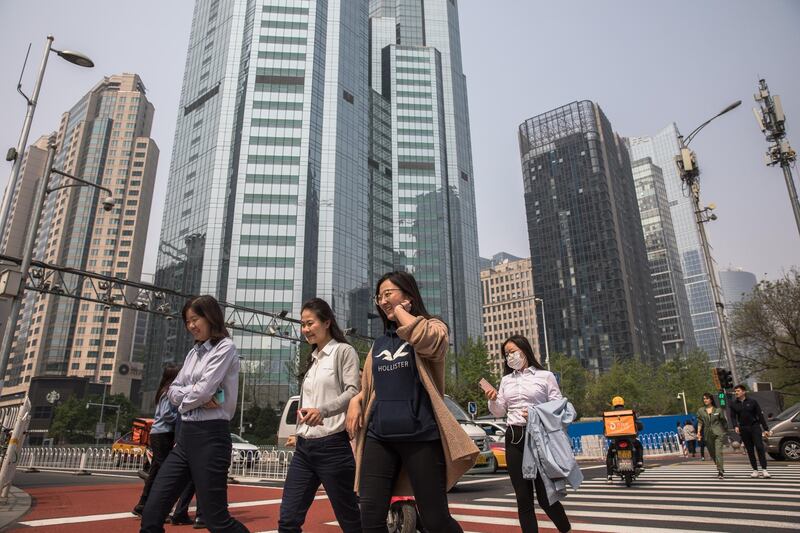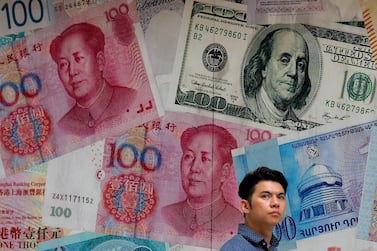China should accelerate opening up of its economy to foreign direct investment to boost growth, the International Monetary Fund (IMF) said.
"Despite gradual opening to foreign trade and investment, China remains less open than other G20 emerging market economies in services and foreign direct investment," the Washington-based lender said in a report over the weekend.
“An agreement with the United States has the potential to support the global trading system, and could also benefit China through further opening up its trade and foreign investment regime and bring about other structural reforms that enhance competition.”
The US and China, the world’s two largest economies, are currently engaged in a trade war, levying tariffs on each other’s imported goods and impacting growth in both countries. The US increased tariffs on $250 billion (Dh917bn) of Chinese goods in May while Beijing responded with additional levies on nearly $60bn of US imports. Washington is set to levy another 10 per cent in duty on $300bn of Chinese imports next month.
Growth in China, the world’s second largest economy, is projected to moderate to 6.2 per cent in 2019 as the planned policy stimulus partially offsets the negative impact from the US tariff hike on $200bn of Chinese exports.
The international lender also advised China to strengthen its external lending framework, and initiate measures to ensure the current account surplus remains in check.
China’s lending outside the country, such as through the Belt and Road Initiative (BRI), has the potential to bring significant benefits to partner countries, according to the lender. Annual infrastructure investment gaps in BRI countries is expected to double by 2040 to $200bn.
“A lending framework that promotes greater coordination, cooperation, and transparency would help maximise the benefits of China’s external lending for partner countries and for China itself, for example by directing financing to much-needed infrastructure projects, strengthening bilateral trade, and deepening global value chains.”
On keeping the current account surplus in check, the IMF said China made progress in reducing external imbalances over several years, and its exchange rate in 2018 was broadly in line with fundamentals.
However, continued efforts are needed to address the distortions that encourage excessive household savings, as well as further boosting consumption, the lender said.
“This will also increase the welfare of Chinese citizens, who spend less on consumption than those in other similar income-level countries.”
The IMF also said China should stay the course on implementing planned financial regulatory reforms, raise capital in smaller banks, and control the rapid growth of household debt to accelerate the economy's expansion.
“By opening up more sectors to private and foreign competition and reducing the share of credit going to state-owned enterprises, China could significantly lift productivity and potential growth,” the lender said. “Removing the implicit guarantees and hardening the budget constraints for state-owned enterprises would improve credit allocation and limit their advantage in accessing credit.”







